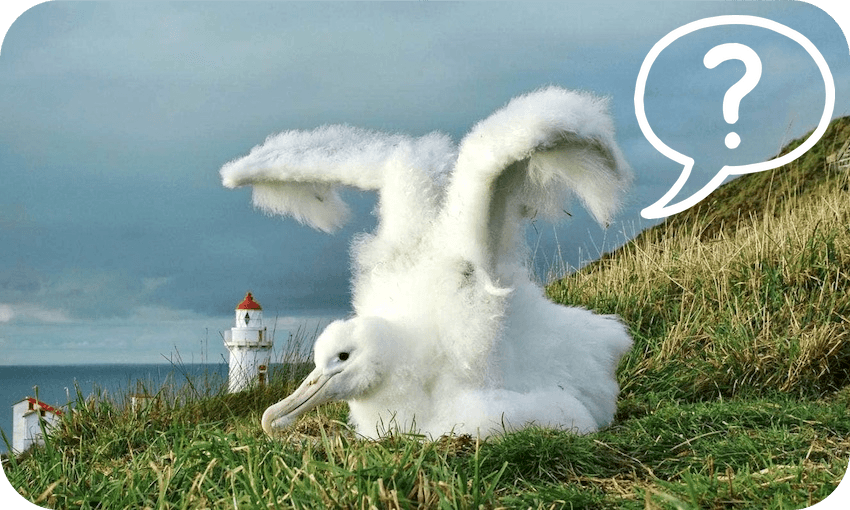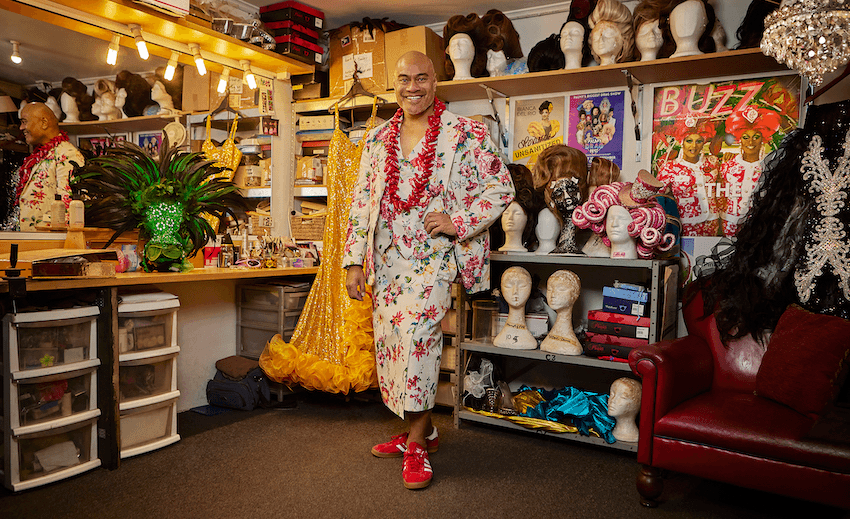Under the light of the moon, four rare eggs were swiped from their nests last week in a heist which has left no clues and many questions. Hamish McNeilly reports.
This story was first published on Stuff.
Last Friday I wrote a story about the alleged catnapper of Roseneath. That was a bizarre animal yarn, which I thought would take some beating. I was wrong.
Because around the same time, another unusual crime caper took place across the harbour, at Taiaroa Head on the Otago Peninsula. Four albatross/toroa eggs were stolen from their nests, and the theft was discovered in a routine walk-through on Thursday.
This is what we know:
- It happened on Wednesday night. The weather was clear; it was the day after the blood moon.
- The eggs were not taken by a predator – well, they were taken by humans.
- Security footage from the Albatross Centre and the Department of Conservation has largely been reviewed. Footage from Port Otago and the nearby Blue Penguins Pukekura will be reviewed.
This Wednesday – almost a week after the theft – I had a wide-ranging interview with Department of Conservation (DOC) Coastal Otago operations manager Annie Wallace about this bizarre crime.
‘We are not leaving any stone unturned’
While the royal albatross breeding ground was usually accessed by road, and then a footpath, it could also be accessed by water – a far more challenging prospect. The site is a nature reserve and is fully fenced, with entry by permit only.
One of the more unusual features of the audacious theft is that the thief, or thieves, passed other eggs in their nests before taking the four in question. That’s because the stolen eggs were taken from a place further away from the coast AND the carpark.
“The four nests were not the first nest they would have got to, wherever they had come from.”
Wallace said she had been at the colony with experienced rangers who were able to advise which birds you could go near, and which ones should be avoided. “I wouldn’t be going anywhere near them … it makes no sense to me that someone was going in at night time … [these birds] have big, sharp nasty beaks and they are not afraid to use them.”
While she was not in a position to comment on whether it was the work of one person or more, she stressed footage was being reviewed. “The reality is that there is a range of different evidence that we are working with.”
However, she was not yet aware of any footage showing a person or people at the colony at a time when they shouldn’t be. “There is nothing tangible yet, but there is some footage we are yet to begin looking at.”
Wallace confirmed the footage yet to be reviewed was not from the colony, but from Port Otago and a neighbouring tourism operator, which I’ve confirmed is Blue Penguins Pukekura. That is important, because that would indicate that the egg thief may have approached the colony by sea.
Approached. The. Colony. By. Sea.
Looking at the below photo, the vessel would either have to approach or land on the beach, and then the egg thief(s) would have to avoid the various mammals that call that area home before scaling a fairly steep section.
Why would someone want to steal an albatross egg?
Wallace said she was not aware of an international market for albatross eggs, nor were those who investigate those types of crimes for the department. Taking eggs as trophies was a popular pursuit during colonial times, “and I guess that trade, in some forms, still exists”.
Earlier this year I reported on the case of a “Kiwi” egg up for auction in Dunedin – an investigation showed it was actually that of a black swan. If you’re interested in the pursuit and study of eggs (for research/news purposes), or as it’s more formally known “oology”, I recommend this article from The Guardian, which has the below quote explaining why “eggers” do it:
“It’s an individual trophy that relates to that person, the location they took it from and the work they did behind the scenes to find the nest.”
And here’s another description, courtesy of Canterbury Museum, which has 2500 eggs in its collection:
‘‘Egg collecting or oology has been undertaken by naturalists and hobbyists alike for almost 350 years. Egg collecting went through a hugely popular period in the 1800s but by the mid-1900s it had slowed down as it was seen less as a respectable scientific discipline and more as a fashionable hobby.’’
In the Dunedin case, it appears unlikely that malice or a grudge were potential motives, given the eggs were removed and not destroyed on site.
But the real reason remains a mystery.
‘It makes no sense at all … it is absolutely senseless’
It was unlikely the eggs were taken to eventually hatch, to incubate for three months and then to feed a chick before it left. “None of that stacks up”, said Wallace. That also means the four eggs were likely to not have survived.
That also pointed towards a collector, and while there was no known New Zealand collector on DOC’s radar, there were potentially overseas markets. Wallace confirmed those who liaised with other agencies, including Customs, were made aware of the theft on Thursday.
Asked why DOC took until Monday afternoon before going public, she replied: “We were just trying to understand what had happened the best we could.”
The stolen eggs represented about 10% of what was expected to be laid this season, which starts in November. Not all eggs would end up fledging, and the colony could lose anywhere around a quarter of those eggs laid. But when you add that 10%, “it becomes significant”.
Meanwhile, the department’s compliance people approached contacts in New Zealand and overseas about the possible trade in albatross eggs, but “came back with nothing”.
Security at the centre would be enhanced following the incident, Wallace said.
Sign up to Hamish McNeilly’s Dunedin newsletter The Mish.



